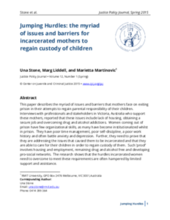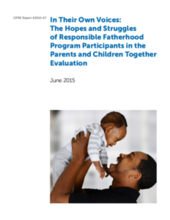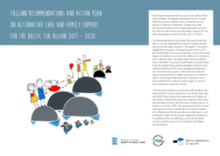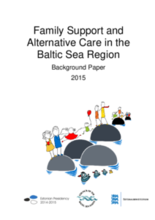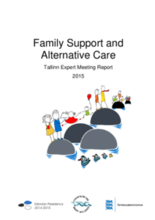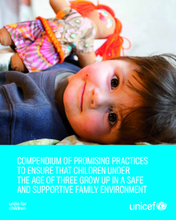Displaying 561 - 570 of 947
This video was launched alongside the first ever “State of the World’s Fathers” report, produced by the MenCare Campaign. The video features interviews with fathers, mothers, and children.
This paper describes the myriad of issues and barriers that Australian mothers face on exiting prison in their attempts to regain parental responsibility of their children.
This qualitative study focused on disadvantaged women in the US child welfare system who have lost their parental rights.
This report describes themes and findings from the first round of in-depth interviews conducted as part of a qualitative study on the views and experiences of fathers who voluntarily enroll and participate in Responsible Fatherhood (RF) programs in the US.
This presentation from Innocenti’s Expert Consultation on Family and Parenting Support focuses on informal supports for families and on incorporating research into practice.
Government representatives, experts and professionals from the Baltic Sea Region including Denmark, Estonia, Finland, Germany, Iceland, Latvia, Lithuania, Norway, Poland, the Russian Federation, Sweden and wider Europe gathered at a two-day expert meeting in Tallinn, Estonia and, together, endorsed a set of recommendations and action plan on alternative care and family support on 6 May 2015.
This background paper was developed as part of a regional study which gathered relevant data and information on family support and alternative care in the eleven Member States of the Council of the Baltic Sea States (CBSS).
This report provides an overview of the two-day expert meeting on alternative care and family support in the Baltic Sea Region that took place in Tallinn, Estonia in May 2015.
This Compendium is a compilation of the most encouraging initiatives in the area of prevention of child abandonment and relinquishment that have been implemented and tested in the CEE/CIS region.
This protocol describes an ambitious experimental evaluation of a universal group based parenting support program, the Family Startup Program (FSP), currently implemented large scale in Denmark; an evaluation that has not yet been made either in Denmark or internationally.

